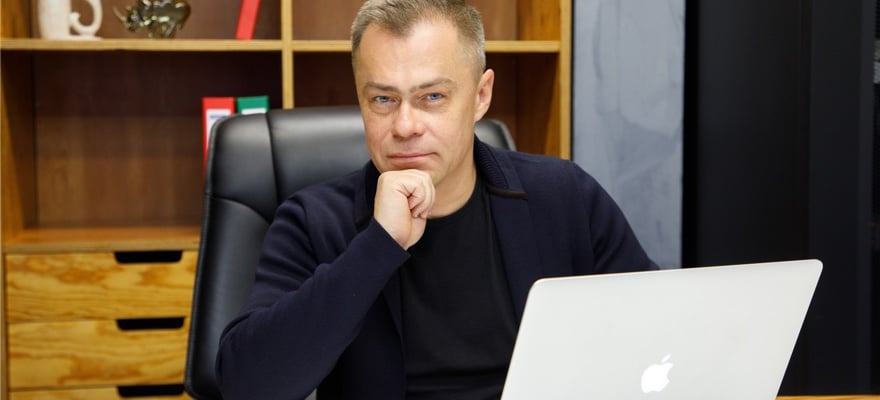Russian forex market regulation is a complicated and even painful subject for many companies. I think that many of us remember those days, when companies were self-organized and tried to solve their regulation issues all by themselves, leaning upon their own expertise. Organizations like CRFIN and KROUFR were pioneers in a regulated market creation in Russia.
At the time a large number of companies wanted to take part in their self-regulatory initiative. They were working quite well between 2010 and 2016, but the times have changed. In 2016 the law regulating the Forex market came into effect. When it came into force there were over 100 brokers in the Russian Federation.
The official license was granted to only four companies, three of which - Teletrade, Alpari and Forex Club are the oldest and biggest veterans in Russia.
Yesterday, on the 27th of December, we found out that these same pioneering brokers lost their licenses. In my view the companies which stood at the roots of the forex market in Russia have been operating outside of some legal boundaries.
It seems that either their experience in providing financial services to clients in Russia turned out to be irrelevant for the regulator or the firms have become inconvenient for their competitors.
The regulatory state of the forex market is not only challenging in Russia, but also globally. In many countries regulations are very strict and limit brokers in too many ways, i.e. reducing the number of trading instruments, leverage caps or even prohibition of certain introducing broking partnership platforms. In other countries, there simply isn’t any regulation.
The significant constraints on the industry imposed by regulators prevents brokers from satisfying the needs of traders. We need to understand that the main goal of the law is to protect traders from unscrupulous companies, and create an environment in which trustworthy companies can thrive and grow their business.
History shows that it’s really hard for regulators to find the right balance. For example, any experienced trader understands that a license can’t guarantee anything. Usually licenses only protect citizens of the country that provides the permit.
Over-tightening of the regulations in a given market makes doing business with intermediaries in that jurisdiction unattractive. In the end, the complexity of the system becomes restrictive to businesses and at the same time provides no security to the end client, therefore failing to reach the desired effect.
In this context the question arises how to find alternative regulations for forex not only in Russia but also in other countries, where there is no regulation or it is overtly tight.
Actually, there is an alternative.
Earlier this year a brand new and fresh product got introduced into the forex broking market giving it a new solution for an old problem - I am talking about the Serenity Escrow platform. The idea behind the company was born only in 2017, but by the end of 2018, the platform has already been released. Grand Capital became the first broker to suggest it to its clients.
As far as I know, several brokers are in the process of signing contracts with Serenity. The platform was created to solve all of the problems related to OTC (over-the-counter) markets. The escrow platform itself is a smart contract that stores clients’ deposits. It is developed in such a way that in order to move funds you need to verify your intentions with at least two parties.
Any actions must be approved by the trader, the broker or Serenity. The process guarantees the safety of the deposits of clients preventing inappropriate usage. Better yet, the platform has more functions. Serenity is integrated with the Tradefora service that helps to estimate the execution quality and track the accuracy of the broker’s prices in real-time. For now, the system aggregates and compares execution prices from over 100 brokers.
Traders can check their execution stats via an API. All transactions that are going through Serenity’s ecosystem will automatically be parsed through Tradefora’s database and cross-checked if they match average market prices. The process ensures transparency and best execution.
Meanwhile, Serenity’s smart contract technology will secure automatic settlement of the deals which have been checked by the system. An integrated component which is monitoring the market for arbitrage opportunities will ensure a thorough review of the deals which do not pass quality checks.
A further convenience is the impending launch of Serenity’s crypto exchange. The deployment of the product will facilitate those who need to exchange fiat money into Cryptocurrencies .
Summing it all up, we are looking at the birth of the new Serenity ecosystem for OTC markets that is built using Blockchain technology. It will give brokers and traders a brand new way to maintain their business relationship on a whole new level. This ecosystem has no boundaries and works in any jurisdiction, ensuring transparency in the relationship between brokers and traders. I am convinced that this project is very important for the Forex market and I recommend brokers to look at it carefully.
This article was written by Stanislav Vaneev, Grand Capital CEO.
Disclaimer: The content of this article is sponsored and does not represent the opinions of Finance Magnates.
















